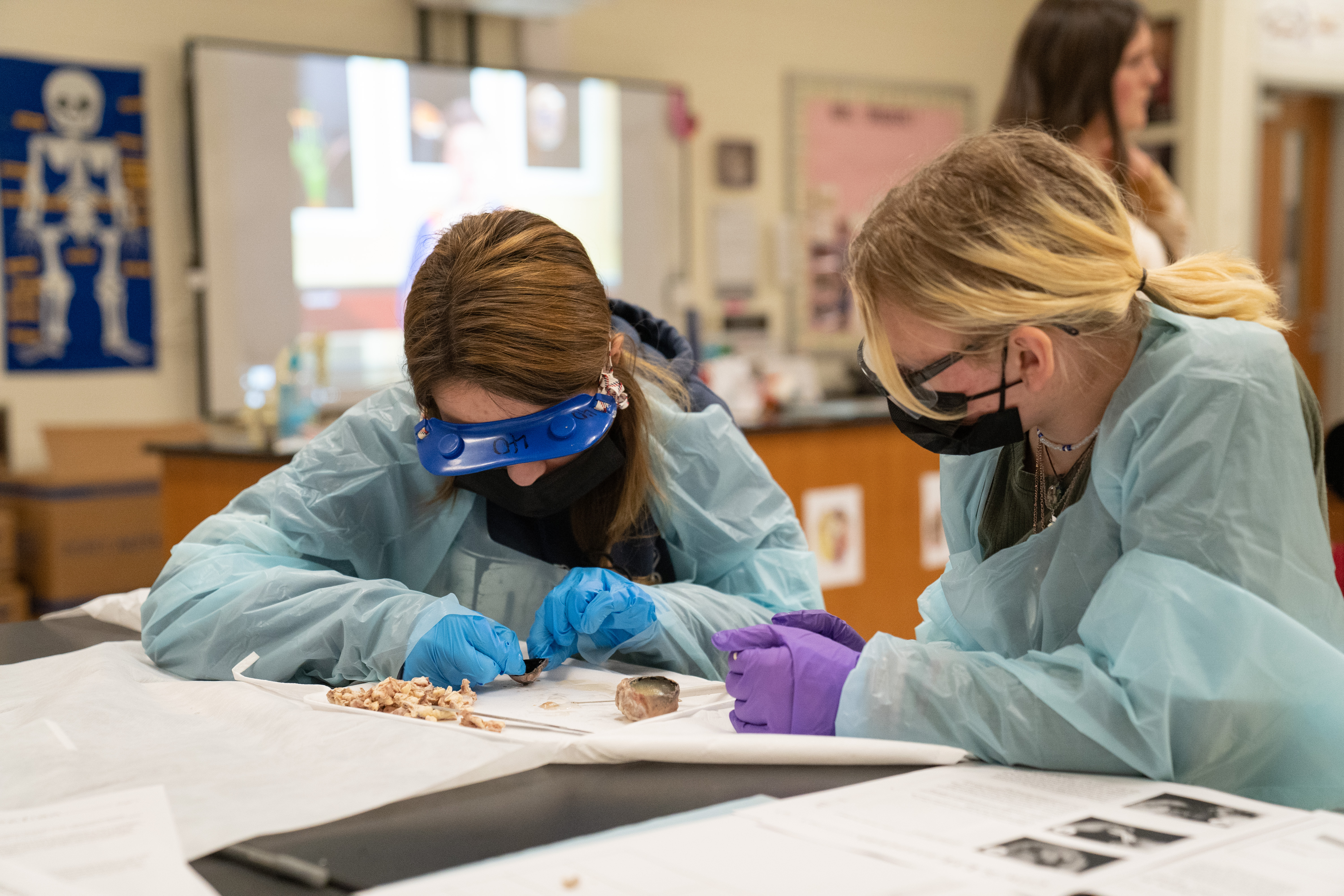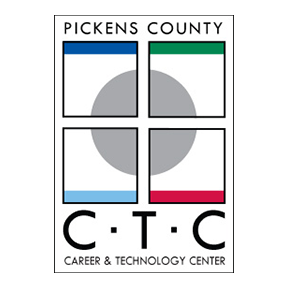Biomedical Science
Course Sequence
Principles of Biomedical Sciences (PBS) - Honors Level
1-unit
Prerequisite: Completed or enrolled in Honors Physical Science/ Honors Algebra 1/Honors Biology
This course provides an introduction to the biomedical sciences through exciting “hands-on” projects and problems. Student work involves the study of human medicine, research processes and an introduction to bioinformatics. Students investigate the human body systems and various health conditions including heart disease, diabetes, sickle-cell disease, hypercholesterolemia, and infectious diseases. A theme through the course is to determine the factors that led to the death of a fictional person. After determining the factors responsible for the death, the students investigate lifestyle choices and medical treatments that might have prolonged the person’s life. Key biological concepts including: homeostasis, metabolism, inheritance of traits, feedback systems, and defense against disease are embedded in the curriculum. Engineering principles including: the design process, feedback loops, fluid dynamics, and the relationship of structure to function are incorporated in the curriculum where appropriate. The course is designed to provide an overview of all the courses in the Biomedical Sciences program and to lay the scientific foundation necessary for student success in the subsequent courses.
Human Body Systems (HBS) - Honors Level
1-unit
Prerequisite: Successful completion of Principles of Biomedical Sciences with a ‘B’ average. Must have completed Honors Physical Science and Algebra 1 with a ‘B’ average in each.
Using real-world cases, students take the role of biomedical professionals and work together to solve medical mysteries. Hands-on projects include designing experiments, investigating the structures and functions of body systems, and using data acquisition software to monitor body functions such as muscle movement, reflex and voluntary actions, and respiratory operation. Students examine the processes, structures, and interactions of the human body systems to learn how they work together to maintain homeostasis (internal balance) and good health.
Medical Interventions (MI) - Honors Level
1-unit
Prerequisites: Completion or enrolled in Honors Chemistry/Honors Algebra II, completion of Principles of Biomedical Sciences and Human Body Systems with at least a ‘B’ average.
In this class, students investigate the variety of interventions involved in the prevention, diagnosis and treatment of disease as they follow the lives of a fictitious family. The course is a “How-To” manual for maintaining overall health and homeostasis in the body as students explore how to prevent and fight infection, how to screen and evaluate the code in human DNA, how to prevent, diagnose and treat cancer, and how to prevail when the organs of the body begin to fail. Through these scenarios, students are exposed to the wide range of interventions related to immunology, surgery, genetics, pharmacology, medical devices, and diagnostics. Each family case scenario introduces multiple types of interventions and reinforces concepts learned in the previous two courses, as well as presenting new content. Interventions may range from simple diagnostic tests to treatment of complex diseases and disorders. These interventions are showcased across the generations of the family and provide a look at the past, present and future of biomedical science. Lifestyle choices and preventive measures are emphasized throughout the course as well as the important roles scientific thinking and engineering design play in the development of interventions of the future.
Biomedical Innovations (BI) - Honors Level
1-unit
Prerequisites: Completion or enrolled in Honors Chemistry/Honors Algebra 2, completion of Principles of Biomedical Sciences, Human Body Systems, and Medical Intervention with at least a ‘B’ average in each course listed.
This course is the capstone course for Project Lead the Way Biomedical Sciences curriculum. In this course students will design and conduct experiments related to the diagnosis, treatment, and prevention of disease or illness. They will apply their knowledge and skills to answer questions or to solve problems related to the biomedical sciences. They may work with a mentor or advisor from a university, hospital, physician’s office, or industry as they complete their work. Students will provide their own transportation for their independent research project. Students will be expected to present the results of their work to an adult audience, which may include representatives from the local healthcare or business community or the school’s PLTW partnership team.

